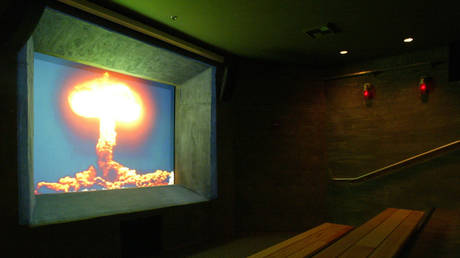North Korea cites ‘realistic’ chance for nuclear war
North Korea has warned of a "realistic" chance for nuclear war in the region, citing US and South Korean military drills...

Pyongyang accused Washington and Seoul of continued military provocations despite repeated warnings
North Korea has warned of a “realistic” threat of nuclear conflict following another round of American and South Korean military exercises, predicting “catastrophic escalation” in the region.
The North Korean Foreign Ministry issued a statement on Tuesday denouncing recent joint air drills between Washington and Seoul, which involved at least one US nuclear-capable B-52 bomber, saying the exercises only heighten the risk of conflict on the Korean Peninsula.
“Due to the irresponsible actions of the United States and South Korea, which are concentrating only on belligerent armed demonstrations thick with gunpowder, contrary to the international community's desire for tension relief and political stability, the risk of nuclear war on the Korean Peninsula is shifting from an imaginary stage to a realistic one,” the ministry said, adding that the drills “clearly” show the US is preparing for a war with the DPRK.
Similar joint combat exercises were also launched last Friday, including a US B-1B strategic bomber, while yet another drill will be held next week to simulate the US and South Korean response to a missile attack by the DPRK. Moreover, beginning on March 13, the two allies will carry out the largest drills in the region in five years, which will continue for 11 days.
“The large-scale US-South Korea joint military exercise that will begin in a few days” are of an “aggressive nature,” the ministry continued, going on to predict “catastrophic escalation that will result from it.”
While negotiations under former US President Donald Trump resulted in a ‘freeze for freeze’ arrangement which saw a pause on joint drills with South Korea in exchange for a halt of Pyongyang’s weapons tests, that deal has since collapsed, with tensions rapidly spiking since President Joe Biden took office in 2021. Last year saw a record number of North Korean missile launches, including several intercontinental ballistic missiles (ICBMs), as well as a flurry of US-South Korean military activity, which the DPRK has repeatedly condemned as preparation for an attack on the North. The missile tests have persisted into 2023, with North Korea continuing to fire off projectiles into the sea amid ongoing drills by Washington and Seoul.






















